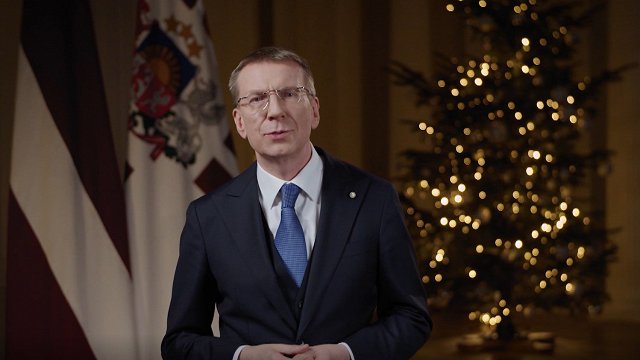However, our colleagues at the LSM Latvian-language service have risen to the challenge with a digest of fact-based legislative near-certainties to expect in the coming 12 months, which we briefly summarise below. And in case you are wondering about the picture, 2024 is apparently the Chinese year of the Dragon, so if you see one flying around during the next 12 months, be sure to check if it has completed the appropriate paperwork.
Taxes
- Credit institutions and consumer lending service providers are subject to a corporate income tax surcharge of 20% , which is calculated using the financial data of the previous tax year.
- The amount of compensation of the employer exempt from payroll taxes for the employee's expenses related to remote work has been increased .
- Increased personal income tax exemption threshold for health and accident insurance premiums.
- VAT relief and the non-taxable minimum amount will also apply to micro-enterprise taxpayers, if the person simultaneously earns income that is taxed at the progressive personal income tax rate.
- There will be a uniform micro-enterprise tax rate of 25%.
- Recipients of royalties will be able to continue the current tax payment procedure paying tax at the rate of 25%.
- Gambling tax rates will rise.
- Value added tax (VAT/PVN) on locally grown fresh fruits, vegetables and berries will increase to 12%.
- Excise duty rates on tobacco products, e-liquids, tobacco substitute products, alcoholic beverages and diesel and kerosene used in special economic zones (SEZs) and free ports will all rise.
-
Participation fees in sports competitions and sports lessons will not be subject to VAT, if the purpose of the competitions or lessons is not to earn additional income.
Mortgage support
Mortgage borrowers will be compensated for 30% of total interest payments on mortgage loans. Compensation will be received for loans for which the contract was concluded by October 31, 2023 and the balance of which does not exceed 250,000 euros. Compensation will not be calculated for those contracts issued with a fixed interest rate throughout the loan repayment period.
Support for children with special needs
From 2024, the state will co-finance home care for children with severe functional disorders, continuing to co-finance care for the child even after reaching the age of majority, until the person reaches the age of 24. It is estimated that 855 children may need co-financing for care at home on average per year. There will also be increased supplements to the state family allowance for children with disabilities, which will increase to EUR 160 per month. The last time the allowance was revised in 2009, and ever since then it has been 106 euros per month.
Winter tires
Next winter will see many so-called 'all season' tires (marked only with the designation M+S) no longer permitted to be on the roads. However, some forms of all-season tires may be driven, provided they have the appropriate markings. Tires with only the "M+S" marking cannot be used but other types will still be legal: 4S – for four seasons, AW – for any season, "All Season" – for all seasons, "Tour Terrain" – for all surfaces. Tires can also have an additional marking in the form of an icon – a mountain with a snowflake, and such tires can be used in winter.
Marriage witnesses
From July 1, 2024, a bride and groom will be able to enter into marriage without witnesses, but if they wish, they will be able to invite no more than two adult witnesses. It will be possible to get married without witnesses by submitting an application and other documents necessary for concluding a marriage at the registry office or at the diplomatic or consular representation of the Republic of Latvia abroad after July 1.
Biowaste sorting
From January 1, 2024, the sorting of biological waste will be mandatory in Latvia. The changes will not affect households that separate their waste into their own compost piles.
Sorting of organic waste will take place in brown containers which should contain kitchen waste and leftover food without packaging, such as vegetable and fruit scraps, skins and cores, cereals and other food products.
Wages and pensions
The amount of the minimum monthly salary during normal working hours will increase from 620 to 700 euros. The guaranteed minimum income threshold for the first or only person in the household will be 137 euros (previously 125 euros), for the other persons in the household 96 euros (previously 87.50 euros).
The amount of minimum old-age pensions will increase. The basis for calculating the minimum old-age pension will increase from 157 to 171 euros, for people with disabilities from childhood - from 188 to 206 euros. The minimum disability pension calculation base will increase from EUR 157 to EUR 171, for persons with disabilities since childhood – from EUR 188 to EUR 206.
Jūrmala entry toll
From February 1, 2024, the entry fee for the special regime zone of the city of Jūrmala will be 3 euros and the fee will apply throughout the year. The fee for longer-term entry passes will remain unchanged: a weekly pass for 7 days will cost 10 euros, a monthly pass (30 days) will cost 31 euros, and a three-month pass (90 days) will cost 55 euros. A pass for the whole year (365 days) will cost 180 euros.
Electric scooters
From January 1, 2024, the registration of electric scooters and cycle rickshaws by the Road Traffic Safety Directorate (CSDD) is mandatory and only registered electric scooters and cycle rickshaws can be on public roads. The registration of the existing electric scooters and cycle rickshaws must be done by March 31, 2024, and after this deadline, it will be forbidden to use these vehicles without their registration in road traffic. Bicycle registration is still voluntary, and unregistered bicycles are allowed to participate in road traffic.
Russian-registered vehicles
From February, vehicles with Russian registration numbers will be banned from driving in Latvia, while unregistered cars will be confiscated. Vehicles with Russian license plates will have to be re-registered in Latvia no later than February 14, 2024, or they will have to leave the territory of Latvia. Unregistered vehicles after this date are planned to be confiscated and handed over to Ukraine.
Likewise, a fine from 750 to 2000 euros can be applied for the unauthorized use of a Russian vehicle not registered for Latvian road traffic.
The requirements will not apply to diplomatic vehicles. Vehicles with Russian license plates will be able to cross the territory of Latvia once in transit, and this must be done within 24 hours.
Energy tariffs
As of January 1, 2024, the natural gas distribution tariffs of the natural gas distribution system operator JSC Gaso will increase .
For users who use natural gas for cooking, with a permitted load of up to six cubic meters per hour, the costs will increase by 1.32 euros without VAT per month in 2024, while the variable part of the tariff will increase by 0.06 euros without VAT. For users who consume an average of 2,500 kilowatt-hours (kWh) of natural gas per month, the average monthly payment will increase by 9.32 euros excluding VAT during the heating season.
Also, new electricity distribution tariffs will come into effect next year. They are on average only 7%-11% lower than those that entered into force in July, but from January new state support is also expected, which will increase the fee for electricity distribution services slightly. 95% of household users will qualify for support.
E-prescriptions
From February 1, 2024, e-prescription drugs prescribed in Latvia will be available for purchase while in another European Union (EU) member state. Initially, Estonia, the Czech Republic, Poland, Spain, Lithuania and Portugal will start exchanging cross-border e-prescription data with Latvia, while other countries will join gradually later on. The list of countries will be available on the website of the National Health Service. This procedure will also work in the opposite direction.
But from January 1, residents and doctors will only be able to connect to the E-health portal eveseliba.gov.lv by using the mobile app "eParaksts mobile" or an e-identity card (eID card) – it will no longer be possible to gain access via internet bank.
Public transport
From April next year until some time in the middle of 2025, a new ticket and tariff system for regional public transport – including buses and trains – will be gradually introduced. Among other things, the system envisages the purchase of more expensive tickets from the bus driver and train conductor, but the purchase of cheaper monthly tickets in advance. The new system of tariffs and tickets will introduce tariff leveling in bus transportation, as a result of which the fares will increase more sharply on some routes than others.































